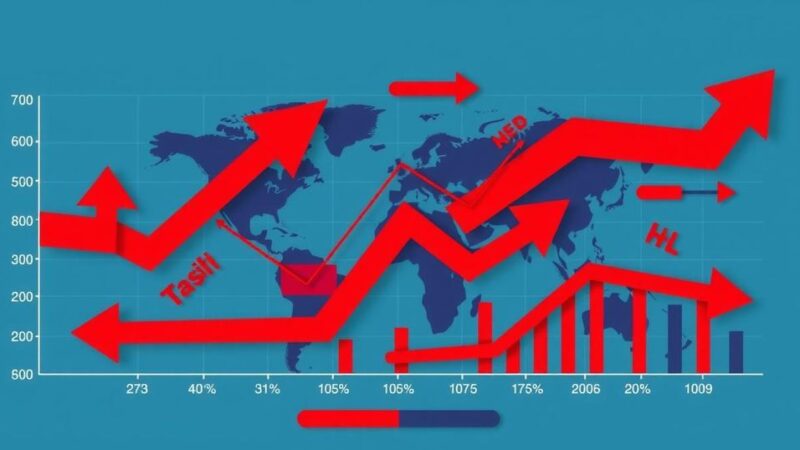Argentina is negotiating for a large upfront payment from a future US$20-billion IMF programme, focusing on the size and timing of disbursements. The aim is to strengthen international reserves and manage debt with the Central Bank. Previous IMF agreements in 2018 and 2022 demonstrated the challenges in stabilizing the economy, affecting current negotiations.
Argentina is actively pursuing a significant upfront payment from its forthcoming US$20-billion programme with the International Monetary Fund (IMF). Ongoing negotiations are concentrating on the specifics of the disbursement’s size and timing. The urgency of the initial disbursement has emerged as a central issue, although the precise amount remains unspecified, with parties involved requesting confidentiality on the discussions. Typically, IMF loans are released in phases, contingent upon the fulfilment of specific benchmarks.
A pivotal aspect of the discussions includes ‘frontloading’, which would enable Argentina to bolster its international reserves. The government plans to allocate some of the IMF funds to service its debt with the Central Bank through non-transferable notes, thereby enabling a recapitalization of the Central Bank. However, the Economy Ministry has not disclosed the exact upfront amount being sought.
Julie Kozack, Chief Spokeswoman for the IMF, indicated that the size and pace of disbursements are still under discussion. She clarified, “As with all of our programmes, disbursements will come in tranches over the life of the programme. But the exact phasing and the size of each tranche is also, of course, part of the discussions that are underway.”
Interest from investors rests heavily on the upfront disbursement details, particularly after Economy Minister Luis Caputo confirmed the total of the deal. Morgan Stanley has projected that the initial US$5 billion could be disbursed in 2025, alongside expectations for an equivalent amount from other international financial institutions.
Minister Caputo has indicated that the approval from the IMF’s executive board for this new loan could take several weeks. He emphasized that when combined with funding from other global financial entities, Argentina’s Central Bank reserves could approach US$50 billion, compared to the current US$26.2 billion.
Past experiences surrounding frontloading have dominated previous IMF agreements, particularly in 2018 and 2022, which did not yield the expected stabilization for the Argentine economy. The IMF’s earlier decision to provide increased upfront funding in 2018 resulted in significant losses. Subsequently, a new government restructured a US$45 billion deal, receiving US$9.8 billion through an initial disbursement. The most recent agreement included $7.5 billion prior to the 2023 presidential election, albeit amid prior violations of programme regulations.
Argentina’s negotiations with the IMF for a substantial upfront payment from its US$20-billion programme highlight the crucial need to enhance its economic stability. The emphasis on frontloading is vital for strengthening international reserves and addressing debts with the Central Bank. Previous agreements reveal the complexities and risks involved in such financing arrangements, underscoring the importance of careful management in forthcoming negotiations.
Original Source: batimes.com.ar






